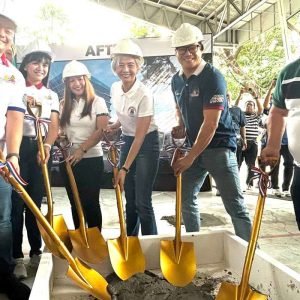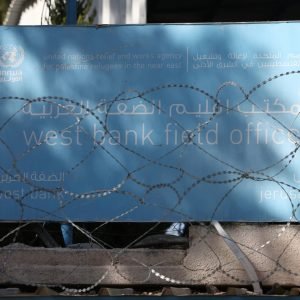
FARHANA Haji Hassan fled Marawi City in 2017 when the ISIS-linked Maute Group wreaked havoc for five months and intense gunfights broke out between government forces and terrorists.
To rebuild her family and her life, she turned to the Marawi Compensation Board, a body formed under a 2022 law to pay Marawi residents who lost their properties. She moved to Quezon City and used that money to open a stall at Commonwealth Market.
“She wanted to save money because her house was old and it was hit by a depression, so she only got a small amount,” Hassan’s letter told senators at the budget hearing of the Marawi Compensation Board on November 5.
Tragedy, however, has befallen the mother again. Her business in the metro went down in flames.
The ordeal of Hassan mirrors the broader hardships facing displaced Marawi residents. Eight years after terrorists struck the “Summer Capital of the South,” victims of the conflict have yet to reclaim their stability and security.
Disruptions in process
THE Marawi Compensation Board, tasked with bringing even an iota of economic stability, is grappling with challenges in giving that.
For one, its funds are drying up. Maisara Dandamun-Latiph, the board’s chairperson, reported that it has exhausted nearly 80 percent of its budget for fiscal year 2024 to disburse funds to a measly number of claimants.
“P350 million na lang po ang aming [budget] before the end of the year at paubos na rin po ’yong allocated for 2023 to 2024 [Our budget till the end of the year is down to P350 million and the fund allocated for 2023 to 2024 has dried up],” Dandamun-Latiph told senators at the budget hearing.
Out of 14,495 Marawi residents who filed for compensation claims, only 1,168 claims have been approved, according to the board. The deadline for filing was July 3.
As of November 15, the board touted in a press release that it has disbursed more than P1.8 billion to approved claimants since its establishment in 2022.
Republic Act (RA) 11696, or the “Marawi Siege Victims Compensation Act of 2022,” was signed by former president Rodrigo Duterte two months before stepping down from office.
It offers tax-free monetary compensation for Marawi residents whose residential, cultural, or commercial properties were destroyed by the five-month clash, which began in May 2017 and ended in October that year.
The board will cease to exist in 2028.
A claimant who has provided “substantial” evidence of property ownership would receive funds depending on the size of the structure and the materials needed for repairs.
The process of approving claims and disbursing money has been a slog, but Dandamun-Latiph, in an interview with Al Jazeera in August, asserted that the board needed to review the merits of each application or else “this office will fail.”
Fixing loopholes
THE Department of Budget and Management (DBM) has allocated P1.154 billion for the Marawi Compensation Board this 2025, which is still up for approval in the Senate.
Still, it will not be enough for the payout of July claimants, according to Dandamun-Latiph. This is why the board is considering requesting P3 billion worth of “unprogrammed funds” to replenish its coffers.
Per DBM, unprogrammed funds are “standby funds outside the approved government fiscal program” used for unforeseen expenses. The term has generated controversy in recent months after the government transferred excess funds from PhilHealth to unprogrammed appropriations.
Other issues have also surfaced during the budget hearing, such as overlapping claims.
As stipulated by the Marawi Siege Victims Compensation Act, residents whose homes were demolished to clear out unexploded ordnance are not eligible to file for claims. Instead, they should follow the process set forth by the Right-of-Way Act (RA 10752).
“We have to disaggregate all of these things so that we can avoid overlapping claims,” Nasser Pangandaman Sr., presidential adviser for Marawi rehabilitation, told senators. “This should be clarified because there may be legal repercussions in the future.”
“They may be paying for claims that should not be paid,” he added.
The compensation law treats the demolition of properties to clear out undetonated explosives as a “national government project.”
In response to Pangandaman, Majority Leader Francis Tolentino said amendments to the Right-of-Way Act are now under way to make it easier for affected residents to get their claims.
The reelectionist senator stressed that, “it is now incumbent upon you to get hold of a copy of the proposed law amending the Right-of-Way Act and perhaps harmonize it with what is happening on the ground insofar as the Marawi Rehabilitation is concerned so that it is exempted.”
“If not,” he added, “it will be different because it cannot be treated differently. We will make this a special case.”
The DBM also warned of “fiscal implications” if amendments sought to the compensation law will be applied retroactively.
Sen. Ronald “Bato” Dela Rosa filed Senate Bill 2828 this September to change how the board will compute the amount of claim, from fair market value to “value of the total area per story of the structures or real properties equivalent to replacement or repair cost.”
The bill, if passed, would include Brgy. Bubonga Marawi among “other affected areas” where its residents could also file for compensation.
In May this year, a group of residents protested at Rizal Park in Marawi to denounce what they alleged was the board’s effort to slash compensation by deducting the depreciation cost to lower a property’s market value.
For the board, assessing replacement costs over fair market value would be much easier—and more favorable for Marawi residents.
“The replacement cost methodology will be easier for us and our work will be faster,” Dandamun-Latiph said. “If we take the fair market value…the payment will be smaller because of depreciation.”






